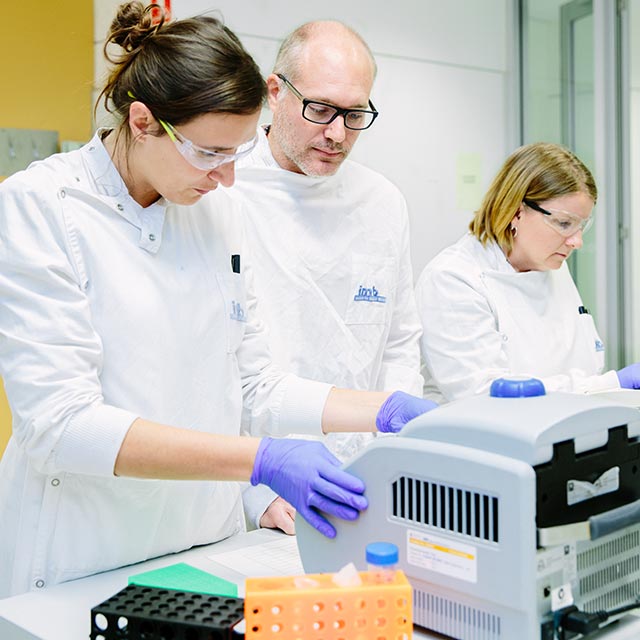University of Queensland researchers have found a promising small molecule treatment that blocked cancer spread and improved survival rates in mice in a pre-clinical study of breast cancer.
The discovery comes just in time for World Cancer Day (4 February).

Institute for Molecular Bioscience researcher Associate Professor Mat Francois said the team had developed a new approach to drug design by targeting a molecular switch previously considered ‘undruggable’.
“Current cancer treatments target elements on the outside of cancer cells, which limits our ability to control specific activity happening inside the cell,” Dr Francois said.
“Our new approach to drug design allows us to cross this barrier and get inside the cell by targeting the activity of transcription factors, which operate as a type of molecular switchboard inside cells and bind to DNA to turn gene expression on and off as needed.
“Using this approach will allow us to switch off activity that promotes disease and switch on healthy cellular activity.”
Dr Francois said the team discovered a small molecule called Sm4 that demonstrated it could successfully use this approach to fine tune the cellular activity responsible for cancer-induced vessel growth, a key contributor to cancer metastasis.
“The small molecule we have discovered, Sm4, has shown it can target and switch off the activity of transcription factor SOX18, which controls the development of our blood and lymphatic vessels induced by cancer growth.
“These vessels act as an on-ramp system to carry cancer cells throughout the body, so being able to block access to these vascular highways with the flick of a molecular switch is a critical step to limit cancer metastasis.
“We also expect that targeting SOX18 with Sm4 will deliver reduced toxic effects to the vascular system than those caused by current anti-metastatic drugs,” he said.
In a pre-clinical study of breast cancer performed in collaboration with QIMR Berghofer Medical Research Institute, Dr Francois said the team found that mice treated with Sm4 had significantly improved survival rates.
“In this initial study, we found mice that received Sm4 survived an average of 29 per cent longer than placebo-treated mice.
“We also found that Sm4 reduced the average number of mice who experienced cancer metastasis to their lungs by 67 per cent.
“Our results show that targeting the transcription factor SOX18 with a small molecule compound is a promising new molecular strategy to treat cancer metastasis.
“Given that high levels of SOX18 have also been associated with poor prognosis for cancer in human patients, it is exciting to know that we have identified a small molecule inhibitor that could help improve cancer treatment.”
The research team is now working with UQ’s commercialisation company, UniQuest, to find an industry partner to further test and develop Sm4 as a future cancer treatment.
The study was published in eLife (http://dx.doi.org/10.7554/eLife.21221) and involved research teams from Australia, the UK, the US and China.
Contact: IMB Communications, 07 3346 2155, communications@imb.uq.edu.au



